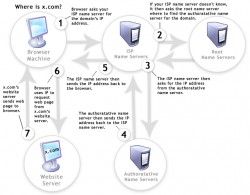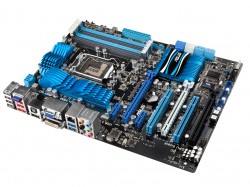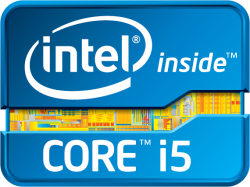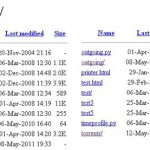As the holiday period truly begins (and by use of the term ‘holiday’, I’m not trying to avoid saying Christmas or in any way take part in the largely fictional “war on Christmas”, rather as a shorthand for saying Christmas and New Year, and I guess having to explain it like this sort of negates the whole shorthand thing, but you can’t be too careful these days) … where as I, um, yes, as the holiday period begins, the news will dry up, and it’s even debatable whether next week’s issue of the WNR is still on or not. Regardless, the week before Christmas is also the last week in which the Copyright Scrooges can manoeuvre to get their beloved SOPA passed in Congress, and so it’s busier than normal.
The US video game sales figures for November was also released during the week, and you can read the full analysis here.

Before we talk more about video games, let’s go through the week’s copyright news first. Once again, we see why money and politics shouldn’t really mix, as news that two Congressional staffers largely responsible for drafting SOPA/PIPA have now “managed” to get better jobs at the MPAA and the National Music Publishers’ Association, two copyright lobbying organisations.
While laws prevent these two from coming back and lobbying their former employees (as if that’s even needed), there are the usual Washington loopholes that still allow the two to have influence on Capitol Hill. The MPAA and the NMPA will argue that this is how it’s supposed to work, that the organisations have managed to secure the service of two very capable, and knowledgeable, people who are already familiar with the issues at hand. Everyone else will be made uncomfortable at yet another incident that highlights the incestuous relationship between lobbyists and politicians. While only the MPAA/NMPA and the two new employees will know what the real deal was, the reality is that the two helped to draft bills that (intentionally, or just incidentally) gave their future employers exactly what they wanted, convinced their old bosses to go along with it, and got new, higher paying jobs as a reward. Whether this was just the unintentional consequence of their actions, or something more troubling that involved more coordination between the involved parties, I don’t want to comment, but sometimes just the appearance of something like this is unacceptable for a truly democratic society, or at least it should be.
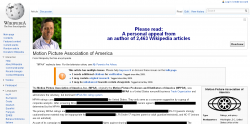
A mock up of what Wikipedia's anti-SOPA protest could look like, with sections or even entire pages blanked to show the dangers of Internet censorship
With breaking (well, by the WNR’s standards anyway) news that further discussion of SOPA will have to wait until after the Congressional break, the anti-SOPA movement main gain an important ally before then, with Wikipedia threatening a day of action to protest the controversial copyright bill. The founder of Wikipedia, the man whose photo you see every couple of months on every Wikipedia page, Jimmy Wales, has suggested that Wikipedia might blank all of its pages, for a short period, to demonstrate against SOPA, something the Italian version of the encyclopaedia has already attempted to great success over a local issue. Right now, it’s all just discussions, because, as Wales rightly points out, doing something like this could have a huge impact on the web. I mean, would somebody please think of the children … who have to write school reports, and what the hell would they do without Wikipedia (and the copy/paste function)? Use another online encyclopaedia, or heavens forbid, go to the library?
And for the anti-SOPA brigade (for all the work I’ve put into the cause, I must be a lance corporal by now, which ironically is also my rank in BF3 – I’m really really not good at the game), Christmas has come early thanks to Universal Music Group’s Scrooge-tastic act that helped to prove why content holders cannot be trusted with the power to censor the Internet. The story begins with the YouTube upload of Megaupload’s cheesy promotional video, starring some of today’s biggest stars, such as Kim Kardashian, P. Diddy, Will.i.am, Alicia Keys, Kanye West, Snoop Dogg, Chris Brown, and sung by Macy Gray. Using an original song, and with written agreements signed for all the stars, what Megaupload didn’t expect was for Universal Music Group (UMG) to abuse YouTube’s anti-piracy tool, to file an infringement report against the music video and have it censored. But that’s exactly what UMG did, although they now deny they did it for copyright reasons, hinting at some unknown agreement between two private companies (possibly relating to recordings of live performances), YouTube and Universal. Not that this makes it any better, of course, as the end result is that a perfectly legal video that presented views that UMG did not approve of (or rather, they don’t approve of Megaupload, period), and UMG had it taken down, which is the very definition of censorship. And because of an agreement between two other private companies (something SOPA would allow, as content holders can make agreements with financial providers to “kill” websites outside of the legal justice system), the tools/rules designed to handle copyright disputes was “abused” to censor free speech, however cheesy it was. What a wonderful demonstration of what a post-SOPA Internet world could be like.
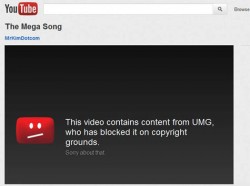
Megaupload's Mega Song was blocked on YouTube by UMG - innocent mistake, or censorship masquerading as a copyright take-down?
Megaupload was quick to file a lawsuit against UMG, and YouTube eventually did reinstate the video with the explanation that, yes, UMG did abuse its tool: “Our partners do not have the right to take down videos from YouTube unless they own the rights to them or they are live performances controlled through exclusive agreements with their artists, which is why we reinstated it.”
But the Streisand Effect ensures just the YouTube version, which was blocked for quite a while, now has over half a million views, and made #Megaupload a trending tag for a while on Twitter. Nice one UMG. And who knew controversy is such a great way to promote a music video, perhaps it’s something UMG can leverage to its own benefit the next time.
Speaking of promoting videos, very funny comedian Louis CK has done something that traditional media won’t be laughing at – he’s bypassing the normal distribution channels, and releasing his own video for $5, and without DRM. And it’s proven to be somewhat of a success, with CK taking in over $200,000 (profit after cost) in just 4 days. According to CK himself, that’s less than what he would have gotten from a traditional distributor, but he’s happy because more people have managed to get a legal version of his video, and nobody had to endure horrible DRM or annoying marketing (register here, register there, give us all your personal info, and then get spammed in your inbox forever). Some have argued that this is a bad development for media distribution, since by taking out the middle men, that’s fewer people being employed. And that argument has some merit, and I’ve long argued that the whole wholesale/distribution/retail chain will suffer, if it isn’t suffering already, due to the digital revolution. But there are strategies to adapt, but those too slow, too paranoid or too stubborn to change, that is the companies that insist on charging digital downloads at the same price as retail boxed version, and those that insist on DRM, will not survive this revolution. And the more they try to hold on to the dying model, the more artists will release themselves from the clutches of traditional media and do it their own way – the truth is that nobody wants to do it alone, unless they have to, and through DRM, bad pricing, and incessant marketing and all the things they’ve done to alienate consumers, traditional media are forcing artists to go it alone.
For now, Louis CK’s video is still selling, despite widespread piracy (not that DRM would have lessened it or anything), and Louis urges everyone to keep buying, as so he “can have shitloads of money”.
And buying, as opposed to torrenting, might also help you avoid public embarrassment, as a new website has been launched to try and embarrass torrenters by listing their IP address and the stuff they’ve downloaded, even the videos of the naughty kind. While downloading from a public tracker does have this risk, those with dynamic IPs may not care too much, still, I don’t think I can support any service that publishes data like this. It would be like if a website, say Google, decided to public its web logs, of which IP address searched for what and when, and that has huge privacy implications. Just because this website is seeking to expose illegal behaviour, doesn’t mean it isn’t a privacy violation.
With that said, it was funny that the website would be used to put anti-piracy groups under pressure, as opposed to the people who actually pirate. This is because the website allows you to search for any IP address, including say the IP address of movie studios, or anti-piracy lobbyists, or even the anti-piracy domain seizing Department of Homeland Security. It certainly was interesting to see staff at NBC-Universal downloading the excellent Game of Thrones, perhaps proving that network TV does know a good series when they see one, even if they don’t actually know (or dare) to reproduce it for their own networks. How about someone at Fox downloading Super 8, produced by another studio? Or the RIAA downloading the latest Kanye West album?
Of course, the right argument is that you cannot really hold the RIAA responsible just because one of their IP addresses was used to illegally download something. It could be by an employee, an ex-employee, a visitor who managed to get access to a network connection, or as some have already claimed, be an unlikely case of IP spoofing. And as long as the RIAA has an appropriate anti-piracy policy, and enforces it, then they shouldn’t be held responsible for the actions of individuals. But since the RIAA don’t think any of this applies to, say Google or ISPs, and that they need to pass tough legislation to punish these organisations, I can only conclude that, yes, the RIAA is guilty of copyright infringement, possibly on a massive scale, and they should be punished accordingly.
![]()
Not much happening in 3D/HD, so let’s skip to gaming. The NPD sales figures for November presented no big surprises in the Xbox 360 outselling everything else, and I think it’s safe to say that it is currently the dominant console in the US, for this generation.
To be fair (or unfair), the PS3 is really the only loser in this generation, in the US or elsewhere, despite PS3 sales doing pretty well worldwide. I say this not to incite fanboy-on-fanboy violence, although that would be an effective way to cull their numbers, but simply because neither Nintendo nor Microsoft could have predicted their respective successes in this generation, which has come largely at the expense of the PlayStation brand. The fact that the PS3 will likely never outsell the PS2 is disappointing given the huge advantage the brand had over the offerings by Nintendo and Microsoft in the last generation, plus the advantage of also being a Blu-ray player (the DVD player in the PS2 being partially responsible for the unit’s success).
It was also interesting to see Modern Warfare 3 break all sales records, despite a struggling economy, wide spread piracy and everything. I’ve only secured my (PC) version recently, and only because it was below retail pricing, so pricing is important as ever. One issue that’s becoming more and more important is regional pricing, especially on Steam for non US buyers. Here in Australia, we get ripped off due to publishers (not Steam) setting higher prices than compared to say the US or the UK. This has led to others using VPNs to buy games from overseas (with the high risk of getting their Steam account banned), or buying from Russian based CD-key sites. It’s a lot of trouble for people to have to go through just so they can hand money to game publishers, and it’s easy to see why some might see piracy as a legitimate source for games, until prices drop to more reasonable levels. The globalised price competition is one of the downsides of a globalised marketplace for sellers, but they benefit from being able to access more markets and more customers than ever, and digital distribution strips away almost all of the manufacturing cost from things, so it should all even out in the end. But only if reasonable pricing policies are put in place, one that is fair to countries like Australia, and can also compete against piracy ($80 vs free is not competition, but $30 to make the guilt go away, plus access online services without fear of having an illegitimate key, might be).
I think that’s enough for this week. See you next week (maybe).


